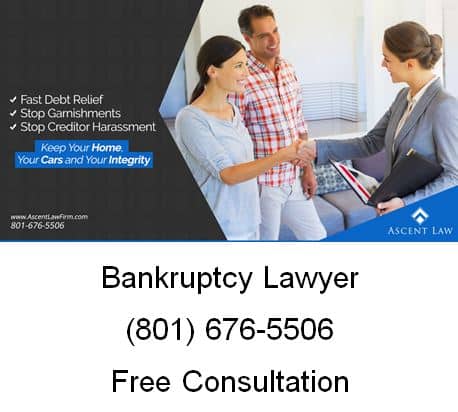The topic of student loan debt and bankruptcy: most every bankruptcy and personal finance-related website out there has written about it on numerous occasions. However, the rules are worth repeating because it is still an unreasonable area of the law that was created to address the concerns of a different era.
Do you pass the Brunner test?
Regardless of whether the debts are public or private, student loan debt is not dischargeable in bankruptcy absent a showing of undue hardship. How do you show undue hardship? Well, if you can get out of bed in the morning it’s pretty difficult.
Most courts rely on the three-part Brunner test to evaluate whether a debtor can demonstrate undue hardship sufficient to part ways with their student debts. if you can satisfy each of the following three requirements, your student loan debt may be dischargeable.
- You cannot maintain, based on current income and expenses, a minimal standard of living for the debtor and dependents if forced to pay off student loans.
- Additional circumstances exist indicating that this state of affairs is likely to persist for a significant portion of the repayment period of the student loans.
- You have made good-faith efforts to repay the loans.
Although courts tend to interpret the Brunner test strictly, whether you qualify for a hardship discharge will ultimately be a function of the individual facts and circumstances of your case as well as the attitudes toward student loan debt that are prevalent in your jurisdiction.
It is very difficult, but not impossible to discharge student loan debt in bankruptcy. One bankruptcy court in Pennsylvania has recommended the following approach to the undue hardship test:
“[w]here a family earns a modest income and the family budget, which shows no unnecessary or frivolous expenditures, is still unbalanced, a hardship exists from which a debtor may be discharged of his student loan obligations.” Correll v. Union Nat’l Bank of Pittsburgh (In re Correll), 105 B.R. 302, 306 (Bankr.W.D.Pa.1989).
Other cases, such as In re Hornsby out of the United States 6th Circuit Court of Appeals, have reversed findings of undue hardship, and instead called for partial discharge of student loan debt, where the debtor’s monthly disposable income was less than $200 after expenses. Pretty strict.
Student Loan Court Cases: Must I exhaust administrative remedies?
OK, so perhaps you’ve read the Brunner test and still think that you have a shot at a hardship discharge. Must you exhaust your administrative remedies prior to seeking forgiveness of your student loans? A new case out of the United States Bankruptcy Court for the District of Kansas has ruled that this is not a requirement.
The case of In Re Cagle involved a debtor who owed $94,000 of student loans dating back to 1992. He suffered from a condition described as “asthmatic bronchitis, severe sciatia and paresthesia of the legs, cervical osteoarthritis with bilateral radiculopathy, chronic fatigue syndrome/fibromyalgia, and renal colic from gout.”
Based on severe illness, the debtor argued that he was completely dependent on his wife, had no realistic prospects for earning income in the future and, as a result, he was entitled to discharge of his student loan debts. The student loan lender, a company called Educational Credit Management Corporation (ECMC), argued that the debtor’s attempts to discharge his student loan debts were premature because he had not yet exhausted his administrative remedies.
ECMC’s position was that the debtor was obligated to seek a disability discharge under the Federal Family Education Loan Program (FFELP) before he was ineligible to have the loans discharged in bankruptcy. The court did not buy ECMC’s argument. In ruling in favor of the debtor, the court ruled that he was under no obligation to exhaust his administrative remedies prior to seeking discharge of his student loans in bankruptcy:
A FFELP discharge is an administrative matter, handled by the Department of Education (DOE), and is completely separate and distinct from a bankruptcy discharge based on § 523(a)(8)’s undue hardship standard. A student debtor could be entitled to a § 523(a)(8) discharge without qualifying for a 34 C.F.R. § 682.402(c) discharge and vice-versa FFELP and its implementing regulations explicitly provide for bankruptcy as an alternative ground for a student loan debt discharge. Debtors who choose to pursue a FFELP discharge do not have a private right of action under 20 U.S.C. § 1087 in bankruptcy, but there is no prohibition on seeking a § 523(a)(8) discharge.
Student Loan Debt is Nearly Impossible to Discharge
When it comes to student loan debt, the bottom line is this: for most people bankruptcy is simply not an option. Having said that, there are hardship cases where a court would order student debt to be discharged. On the positive side, there is a growing sentiment in both the consumer bankruptcy world as well as the public at large that believes student loan debt should be fully dischargeable in bankruptcy.
As continue toward a student loan crisis, there are many beating the drums to change the legislation so that those facing financial difficulty can shed their student loans and start over. My feeling is that it will not be too much longer until the legislation is modified in some way to make it easier on the average consumer to handle their student loan burden.
Free Consultation with Bankruptcy Lawyer
If you have a bankruptcy question, or need to file a bankruptcy case, call Ascent Law now at (801) 676-5506. Attorneys in our office have filed over a thousand cases. We can help you now. Come in or call in for your free initial consultation.
8833 S. Redwood Road, Suite C
West Jordan, Utah
84088 United States
Telephone: (801) 676-5506
Recent Posts
Can Credit Card Companies Take Your House?
If I File Bankruptcy Do I Have to Go to Court?



